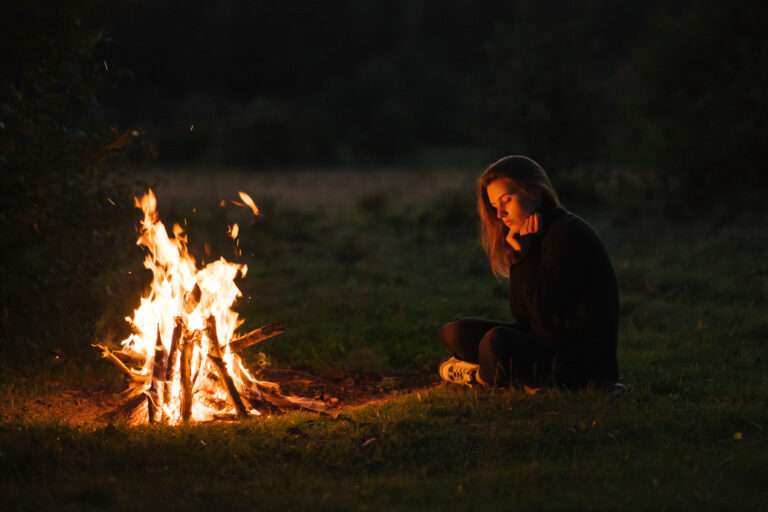What Is Friendship?
Although it might seem simplistic at first glance, this question is actually quite pertinent. The simplest definition of a friendship is an affectionate relationship formed through a strong and voluntary interpersonal bond.
In other words, a true friend is someone we choose to connect with willingly, separate from family or legal obligations. They’re the ones we select out of the crowd and say, “Hey, I want to hang out and do stuff with this person!”
Where did friendship come from?

Daniel J. Hruschka highlights in his book “Friendship: Development, Ecology, and Evolution of a Relationship” that throughout history and various cultures, the idea of friendships being chosen connections between individuals is quite uncommon.
Friendships have long been recognized as vital for our well-being and survival, leading to the development of cultural practices around forming them. In certain cultures, parents played a role in selecting close friends for their children, and elaborate friendship ceremonies were held, akin to formalizing a romantic partnership through marriage.
Today, thankfully, we have the freedom to choose our own friends (a big relief because the thought of my parents picking my friends is terrifying). However, there are still societal norms and structures that influence and sometimes restrict our options when it comes to forming friendships.
Researchers have attempted to create formal models for studying friendships, and in the 1990s, they developed one that remains widely used today. This model examines two primary categories of factors:
- Individual factors: These include our personality traits, beliefs, values, approachability, social skills, and other personal characteristics.
- Environmental factors: These factors encompass the people who are physically present around us due to where we live, where we go, and what activities we engage in.
In essence, we tend to become friends with individuals who are similar to us and already part of our everyday environment. But that still begs the question. How can we define the term effectively if there are so many differences across cultures in how friendships are created and maintained?
What is the definition of a true friend?

My comment above about how friends are the people we pick out of a crowd and say, “Hey, I want to hang out and do stuff with this person!” may be a decent working definition for my culture, but not for everyone’s. So how do we even “know” it’s a friendship?
Dr. Hruschka identified three core elements present in all types of friendships, regardless of how they are formed.
What it really means to be a friend?
- Positive and mutual feelings of goodwill: True friendships are characterized by genuine care and positive sentiments shared between individuals.
- Unconditional assistance and aid when in need: Real friends offer support and help to each other without expecting anything in return, especially during times of need or difficulty.
- Fun and frivolous gift-giving: Real friends exchange tokens of affection and appreciation, often in the form of enjoyable and light-hearted gifts that contribute to the bond between them.
Dr. Hruschka was most interested in the idea of unconditional aid, the idea of giving help without expecting anything in return. It might seem strange from an evolutionary perspective, but once someone becomes a true friend, this support is consistent and reliable.
Regardless of what happened before or if they can help us later, we just do it. If someone is our true friend, we care about them and help them without expecting something back. We don’t keep score.
Related Reading: How To Form Healthy Friendships!
Why do we need friends in our life?

We’re built to connect with others. Being understood by people who care about us helps us feel better emotionally and safe. For example, even if you’re in the hospital surrounded by medical staff, you might still feel scared and lonely if no one connects with your emotions.
When someone understands, accepts, and loves us for who we truly are, we feel more secure. Surprisingly, it also makes us more courageous. The belief that being close to others leads to codependency is totally wrong. It’s actually the opposite.
When we discuss “attachment issues,” it’s usually about our connections with our caregivers and romantic partners. However, these issues can affect any kind of relationship we have with others. “Relationship” simply means a connection between people.
And attachment is the nature of how those connections are formed and maintained. So, all the stuff from our past and present lives—old baggage, mental health challenges, trauma histories, and more—can impact these connections.
Attachment theory categorizes attachment into four types: secure, anxious, avoidant, and anxious-avoidant (disorganized) attachment. While it’s not surprising that our past family dynamics and previous romantic relationships influence our current relationships, the impact on our friendships is often overlooked.
Related Reading: How Attachment Styles Influence Relationships
The bestselling book on attachment theory, “Attached: The New Science of Adult Attachment and How It Can Help You Find and Keep Love” by Dr. Amir Levine, explores the dynamics of all types of relationships, offering insights into how attachment styles affect our interactions with others.
Dr. Levine emphasizes that having someone dependable by our side not only makes us feel secure but also boosts our self-confidence. With supportive friends cheering us on, we’re more likely to pursue our goals and face challenges head-on, knowing they have our back. This support is crucial for building strong friendships.
Why Friendship Relationships Are So Important

Research has shown that our psychological well-being is primarily linked to our romantic partners, followed by our friends and then other family members. True friends rank as our second most important relationships, and they become even more crucial if we don’t have a spouse or partner. However, friendships often don’t receive the same level of attention or importance as romantic relationships in our culture.
The issue lies not in intentionally sidelining real friends but in our overwhelming focus on romantic relationships. In various cultures, our narratives revolve around romantic partnerships, perpetuating the notion that two individuals are halves of a whole.
Consider the fact that approximately 30% of the fiction book market comprises romance novels. This means that one-third of all fiction books revolve around romantic relationships, leaving the remaining two-thirds for other topics to squeeze into. Regardless of whether we’re single, in a committed relationship, or navigating some form of undefined relationship, we typically find meaning and fulfillment in our lives.
Being in a relationship isn’t the sole indicator of life happiness, despite the societal pressure suggesting otherwise. What truly matters is having positive connections with good people in our lives, regardless of whether those relationships involve romantic partnerships. The relationships we actively choose for ourselves hold immense significance. However, if we lack these meaningful connections, it can have a significant impact on our well-being.
What are the effects of having no friends?

When we lack meaningful and fulfilling relationships, our bodies start to experience a gradual release of loneliness. Loneliness is characterized by feelings of unease, discomfort, and sadness due to perceived social isolation. It reflects a sense that our social needs, both in terms of quantity and quality, are not being met.
Why do we feel lonely without our friends?
You can be surrounded by people, but not feel connected to any of them. This sense of disconnection can occur whether you’re in a hospital with medical staff constantly attending to you or at a party where you’re supposed to be having fun but end up only conversing with the cat in the corner. The opposite, however, is also true.
You can also be pretty isolated and not consider yourself lonely. Some individuals may prefer solitude and isolation without experiencing loneliness. Living alone or in remote areas doesn’t necessarily lead to feelings of loneliness for everyone. Some people enjoy a solitary lifestyle, finding contentment in nature and occasional human interactions. Thus, being alone doesn’t always equate to feeling lonely, and living alone isn’t as strongly correlated to feeling alone as one may think.
Indeed, individuals who are married or living with family members tend to report lower levels of loneliness compared to those who live alone. However, for individuals who feel disconnected or unhappy in their relationships or living arrangements, loneliness can be especially intense, even when surrounded by others. It’s not just about the presence of people but the quality of connections and relationships that determine feelings of loneliness.
Loneliness is often associated with older adults, but research indicates that it’s actually more prevalent among younger people. Self-reports show that around 40% of individuals over 65 experience loneliness, while a striking 80% of individuals under 18 report feeling lonely. Those in the middle age range are less likely to report loneliness, but it remains a significant issue for many.
What Causes Us To Feel Lonely?

Immigrants in the U.S. are disproportionately more likely to experience loneliness compared to individuals born in the U.S. from the same ethnic group.
We can also witness loneliness epidemics. For instance, during an economic downturn in Japan in the 2000s, many men found themselves unemployed. The situation became so dire that approximately half a million people adopted a hikikomori lifestyle, withdrawing from social contact and remaining confined to their homes for months or even years at a stretch.
Another significant factor contributing to loneliness is external circumstances, such as a pandemic or a shutdown of our regular lives. This situation, known as state loneliness, occurs when external events, like losing a job or working from home due to a pandemic, restrict our ability to interact with others in both general and meaningful ways.
But there’s another type of loneliness we need to talk about: trait loneliness.
What Is Trait Loneliness? Why do I feel lonely but want to be alone?
A state of being is temporary, but a trait is a stable characteristic. External factors contribute to 52% of our loneliness, while trait loneliness makes up the remaining 48%.
Researchers have been investigating the brain activity associated with loneliness. They’ve found that the nucleus accumbens, located in the ventral striatum, lights up when people report feeling lonely. This area of the brain is responsible for reward processing.
This suggests that trait loneliness may stem from a dysfunction in social reward processing in the brain. Essentially, our brains may struggle to recognize and respond to social connections. Furthermore, a significant portion of loneliness appears to have a genetic component, or more precisely, an epigenetic one. Genetic refers to the inheritance of specific genes.
Genetic inheritance determines traits like eye color and susceptibility to certain diseases such as cystic fibrosis or sickle cell anemia. On the other hand, epigenetics involves modifications to gene expression rather than changes in the genetic code itself.
This means that certain genes can be turned on or off based on our environment and experiences. Importantly, these changes in gene expression can be passed down to future generations, potentially up to fourteen generations. Thus, we inherit physical characteristics, resilience, and trauma that our ancestors’ experiences have shaped.
….
You might be curious how we got to talking about trauma when discussing how to define friendships. Well trauma can actually make it hard for us to trust and connect with others, which affects our ability to make true friends. Additionally, loneliness often has roots in deep-seated trauma that can influence both how we form a real friendship and how we treat our good friends.
Why Trauma Matters When It Comes To Friendships

Trauma happens when something overwhelms our ability to cope, affecting our nervous system. It can also impact our capacity to form and keep secure connections with others.
Trauma affects how we process social rewards, which can establish a baseline level of loneliness. Just like some people are naturally happier than others, some may have a predisposition towards feeling lonelier due to trauma.
We all have a baseline level of loneliness to deal with. Whether it’s from neglect we faced, or our ancestors faced, this sense of loneliness can be deeply ingrained and less about our current circumstances. That’s why some people can be content living in solitude while others would find it unbearable.
But having a dispositional level of loneliness doesn’t mean you’re doomed to feel disconnected forever. It’s just like being naturally grumpy or naturally creative. It’s part of who you are, but it doesn’t condemn you to a lifetime of misery. It’s important to recognize this aspect of yourself and be mindful of it.
And?
It means addressing any trauma and attachment issues that hinder your ability to form the true friendship you desire. By doing this work, you can improve your friendship skills and recognize relationship security more effectively, whether it’s present or not.
Loneliness varies greatly among individuals, but it remains a primal signal regardless of its intensity. Similar to hunger, loneliness is a fundamental reminder that we require the nourishment of connection, highlighting its cellular importance just like the need for food.
Loneliness isn’t solely about needing support, which can be obtained from a therapist. It’s about the reciprocity of that support. We’re nourished not only by receiving help but also by giving it to others.
Why is loneliness so bad for health?

Loneliness can alter the expression of our genes (epigenetics), leading to inflammation and premature cell death. This effect is as harmful to our health as actual poison. The impact of loneliness on our physical well-being is comparable to smoking 15 cigarettes a day. The impact on our mental health is just as equally frightening.
Loneliness is such a significant issue that former U.S. Surgeon General Vivek Murthy declared it the health problem he most wanted to address.
Social isolation heightens our susceptibility to various health conditions, including heart disease, stroke, dementia, depression, anxiety, psychosis, personality disorders, low self-esteem, and suicide. Individuals who initially reported loneliness but didn’t have these health issues were significantly more prone to developing them over time, according to follow-up studies.
For individuals who already had these health conditions, those who also experienced loneliness were significantly more prone to hospital visits, complications, and even mortality related to their illness.
Loneliness exacerbates the progression of diseases.
Can I Avoid Loneliness By Getting A Bunch of Friends?
Bert Uchino, a social psychologist, has researched not only the presence of friendships but also their quality, correlating this data with physical health outcomes, matters. He refers to negative relationships as “aversive relationships,” meaning they are wholly detrimental.
Whether it’s a toxic romantic relationship, a dysfunctional family dynamic, or a truly awful friend, no matter what, these negative relationships are clearly linked to the same detrimental physical and emotional health outcomes.
As you think about loneliness and friendship, here are some questions to consider:
- How do you distinguish between being alone and feeling lonely?
- How do you experience being alone and loneliness in your own life?
- Can you identify situations or circumstances that have intensified your feelings of loneliness?
- What effects has loneliness had on you personally?












